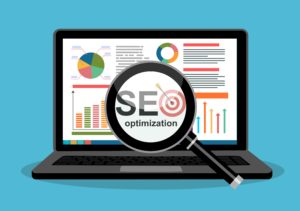
Ever wonder why your website is slow?
You can’t afford to waste a moment on the internet. If your website is sluggish to load, you’ll notice the impact straight away – just a few extra seconds of load time can cause your audience to abandon your page altogether. Slow speeds can have a significant impact on visibility, revenue and sales, so don’t ignore it.
Website load speed is determined by a whole host of factors like the volume of images on site, messy code, JavaScript issues and poor hosting software. It can be tricky to work out precisely what is causing your slow load times. The good news is that most problems are relatively simple to fix.
In this article, we explore the top reasons why your website is loading slowly, and what you can do to rectify the problem.
Clogged up database
If your website is more than a year or two old, chances are your database will be clogged with old files and spam. If you’re using WordPress, there could potentially be thousands of post drafts and revisions clogging up the database, causing your website to run slowly.
You can manually go through and delete those obsolete files yourself, but you’ll be surprised how quickly they add up again. Instead, we recommend using an automated tool that clears down your database every few weeks or so.
Slow web hosting company
Your choice of web hosting company can have a significant impact on site speed. Check to see whether your provider offers performance optimisation as part of your package, and if not, negotiate this into your contract. If you’re unsure, perhaps look at switching altogether.
No caching plugin installed
Every modern website should have a caching plugin installed. Simply put, caching helps to improve the performance of your website by storing data points in the ‘cached memory’. Each time you visit a particular website, instead of loading the content from scratch, content from the caching memory is accessed, speeding up load times.
By installing a browser/HTTP caching plugin, or server-side plugin, you will no doubt see a considerable improvement in the performance of your site.
Website themes not optimised for speed
You may have chosen your website’s theme because it looked pretty. Perhaps you chose it because it was super easy to navigate.
One of the things many digital managers fail to analyse when choosing a web theme is how fast it loads. Be sure to test your theme on different devices before you roll out. If you’re waiting for more than a second or two, it may be time to look at a new theme for your site.
When selecting a theme for your website, opt for as lightweight as possible. Check to see how many other sites are using the same or similar theme, as this will give you a good indication of how well it is likely to perform (under 50,000 users and alarm bells should start to ring). You’ll want a theme that is lightweight, secure and responsive for optimum load speeds.
Too many plugins
Most modern websites use a variety of plugins to serve content dynamically. There are some fantastic options available, making it even easier to host rich media on your site.
However, one too many plugins, or plugins that are implemented incorrectly can have a devastating impact on your page load speed. If you’re using several API calls to render jQuery/ JavaScript data, this could be the culprit.
To solve the issue, carry out a JavaScript audit to determine which scripts you need and which you don’t. Make sure you have asynchronous loading enabled and consider using software such as Google Tag Manager to manage all tools in one place.
Not enabling gZIP compression
gZIP compression instructs the server to group all of the various web objects on your site (such as images, CSS, files, JavaScript etc.) into one single container before they’re transmitted to the requested browser.
By enabling gZIP compression, you’ll significantly reduce response time as there is less data to transfer between your server and your user’s browser when loading your website.
Unoptimised images
If your website has a large number of unoptimised images, your site will likely run slower than it should. High-resolution images like lifestyle photography and banner creative can consume much bandwidth while loading, resulting in a slower than average load time.
The good news is that this is a relatively easy issue to fix. Before loading any imagery or rich media to the site, ensure it is optimised. You can do this using an auto-resize tool (there are some free options online) or by using the ‘Optimise for Web’ functionality in Photoshop. Opt for JPEGs instead of PNGs, as these are much smaller in size but won’t compromise on quality.
Website code density
Over time, websites can become clogged up with unclean code. Things like excessive white spaces, empty new lines, too many comments and inline stylings can cause your website stylesheet to grow in size, ultimately impacting site speed.
Enlist the help of your website developer or digital designer to go through and remove all of the unnecessary code from your website. Avoid the temptation to use inline CSS, and try not to create multiple stylesheets as you go along. A cleaner, more streamlined code will help your website to load faster and will boost your SEO performance too. A win-win!
Once you’ve carried out these few optimisations to your site, you’ll likely see a positive impact on site speed. However, the effects of your hard work can wear off pretty quickly if left unchecked. We recommend tracking host uptime and speed regularly to ensure your website is performing as it should be.


